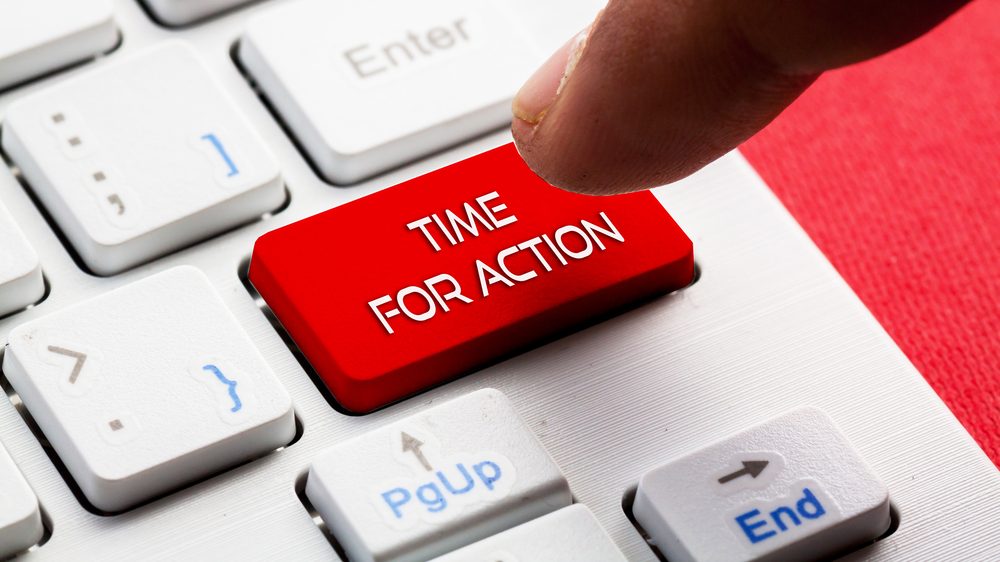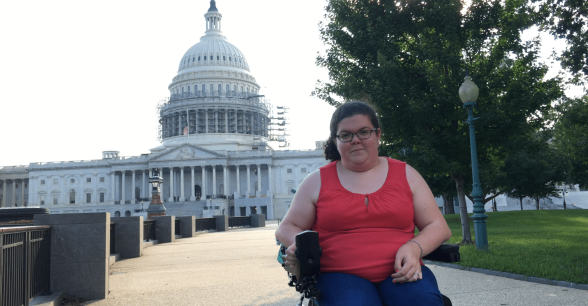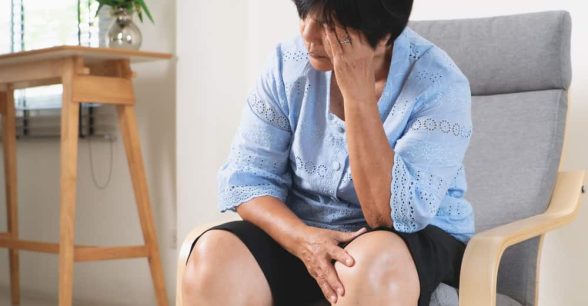Valuing Activism of All Kinds
Recently, disabled activists from ADAPT protested in Washington, DC as the House debated the American Health Care Act (AHCA). Fifty-four badass disabled people put their bodies on the line, chanting and drawing media attention on what is at stake if the AHCA passes. They were arrested inside the Capitol Rotunda for obstructing passage in a public building. They made, in the words of Rep. John Lewis, good trouble.
I felt immense pride seeing disabled people practice civil disobedience and defend the right of all people to basic health coverage. In the back of my mind, I also felt a twinge of envy. I miss the camaraderie of being in a large group of disabled people fighting the system. It was an immature case of Activism FOMO (fear of missing out).
As I questioned my feelings, I realized I still wrestle with mainstream notions of what it means to be an “activist” and the centering of non-disabled constructs of what it means to “show up” in rallies, town halls, marches, or protests. Maybe it’s because I’m getting older, but I do prefer to stay home–I don’t need to worry about weather, transportation, attendants’ schedules, or the lack of accessible bathrooms in public spaces. This is why I am grateful for the privilege of having a fast broadband connection, laptop, and love of social media. While it can feel lonely organizing from home, I have to remind myself that the activism I am involved with now is both complementary to and as legitimate as other traditional forms. Different modes, same goals.
For instance, last year Gregg Beratan, Andrew Pulrang, and I created #CripTheVote, an online movement encouraging the political participation of people with disabilities. The three of us use Twitter to keep the movement going and with our hashtag we’ve seen the disability community come together in powerful ways. Last year, Rooted in Rights gathered #CripTheVote stories from disability activists around the country.
#CripTheVote recently hosted a chat on the American Health Care Act and its impact on disabled people. Here’s a brief snapshot of the main themes from the online discussion:
Healthcare is more than just medical services for people with disabilities.
Medicaid provides most home & community-based services (HCBS). #savemedicaid #CripTheVote
— Julia Bascom (@JustStimming) March 21, 2017
Block grants and other efforts to cut Medicaid will have disastrous repercussions for disabled people.
A3. It would cost me $72,486 to pay out of pocket for my home care. I’m not allowed to earn more than $60K and get Medicaid. #CripTheVote
— Denise DiNoto (@deescribes) March 21, 2017
Healthcare is a right, not a luxury.
@DisVisibility A4: The right to stay at home, access to physical and mental health services, care regardless of condition. #CripTheVote
— Alexander Calhoun (@AlexCalhoun23) March 21, 2017
Attempts to repeal the Affordable Care Act will unravel the decades of activism by the disability community.
A5 Huge concern is per capita caps & block grants. Cuts to Medicaid mean disabled ppl will be forced into institutions and die. #CripTheVote
— Lindsay Baran (@lindsay_baran) March 21, 2017
People with disabilities are scared – for many good reasons.
I generated $730k in medical bills in ’15 & ’16. Without that care, I would be dead. This is literally life & death for us #CripTheVote https://t.co/5uH9MB0Rn9
— matthew (@mattbc) March 21, 2017
Participants gave real-life examples of the importance of healthcare on their lives, ideas for improving policies and services for people with disabilities, and actions people can take to become politically engaged.
Looking ahead, I know that activism in all of its forms (e.g., letter writing, making phone calls, protesting, Twitter chats, storytelling) will be needed in order to mobilize and organize a coalition of diverse communities with common political goals and that each kind of activism has a unique purpose and power.
The next time I develop symptoms of Activism FOMO, I’m going to tell myself: “Do what you can, however you can. All efforts are valuable. And get over yourself!”
About Rooted In Rights
Rooted in Rights exists to amplify the perspectives of the disability community. Blog posts and storyteller videos that we publish and content we re-share on social media do not necessarily reflect the opinions or values of Rooted in Rights nor indicate an endorsement of a program or service by Rooted in Rights. We respect and aim to reflect the diversity of opinions and experiences of the disability community. Rooted in Rights seeks to highlight discussions, not direct them. Learn more about Rooted In Rights



